As the counter pandemic lockdown prolongs, thousands of people in unorganised and transporter, retail and services sectors are literally jobless. Left to fend for themselves, most of them are unable to decide if the pandemic is a bigger killer than the lockdown, reports Khalid Bashir Gura
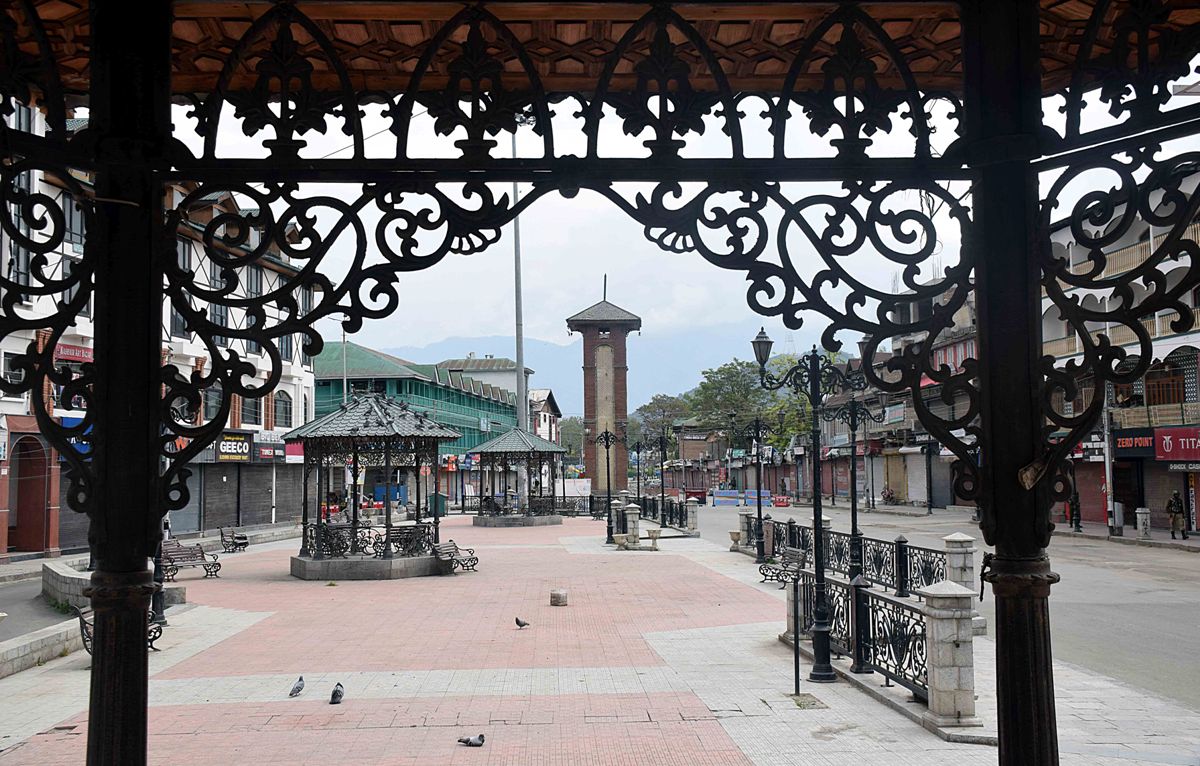
“If we would not die of the Coronavirus I am sure we may die of inevitable hunger and poverty,” says Suhail Ahmed, 29, a street vendor in Shopian. Managing with his cot, he has been struggling to earn the livelihood since August 2019. “Even during normal days when the Coronavirus was not around, it was not easy for us. There was no help from the government. Only some NGOs helped us get by”.
Suhail has been a vendor for seven years. He had to leave his studies to shoulder the responsibilities of the family, already struggling to manage two ends meal. “If the lockdown is eased we are ready to adhere to health advisory guidelines,” says Suhail.”I want to resume my routine without delay to feed a family of seven”.
He is worried about the winter when the harsh cold weather demands more resources to survive. “The summers are the time to earn. But Coronavirus are a double whammy for us now. We have gone from one lockdown into another.”
Like most people in South Kashmir, Suhail does not have agriculture or horticulture land. “Everybody does not have land to compensate for other losses. The street is our saviour. Many vendors are graduates, unemployed and poor,” says Suhail.
Umar Ahmed, a fruit vendor in Srinagar, is back behind a neatly arranged stack of fruits attending to his customers. “I am hoping the lockdown will be eased further to allow people to move around and work,” says Umar amidst haggling of customers. “People were scared to buy fruit, and because of sudden lockdown, most of the stock of fruits perished”.
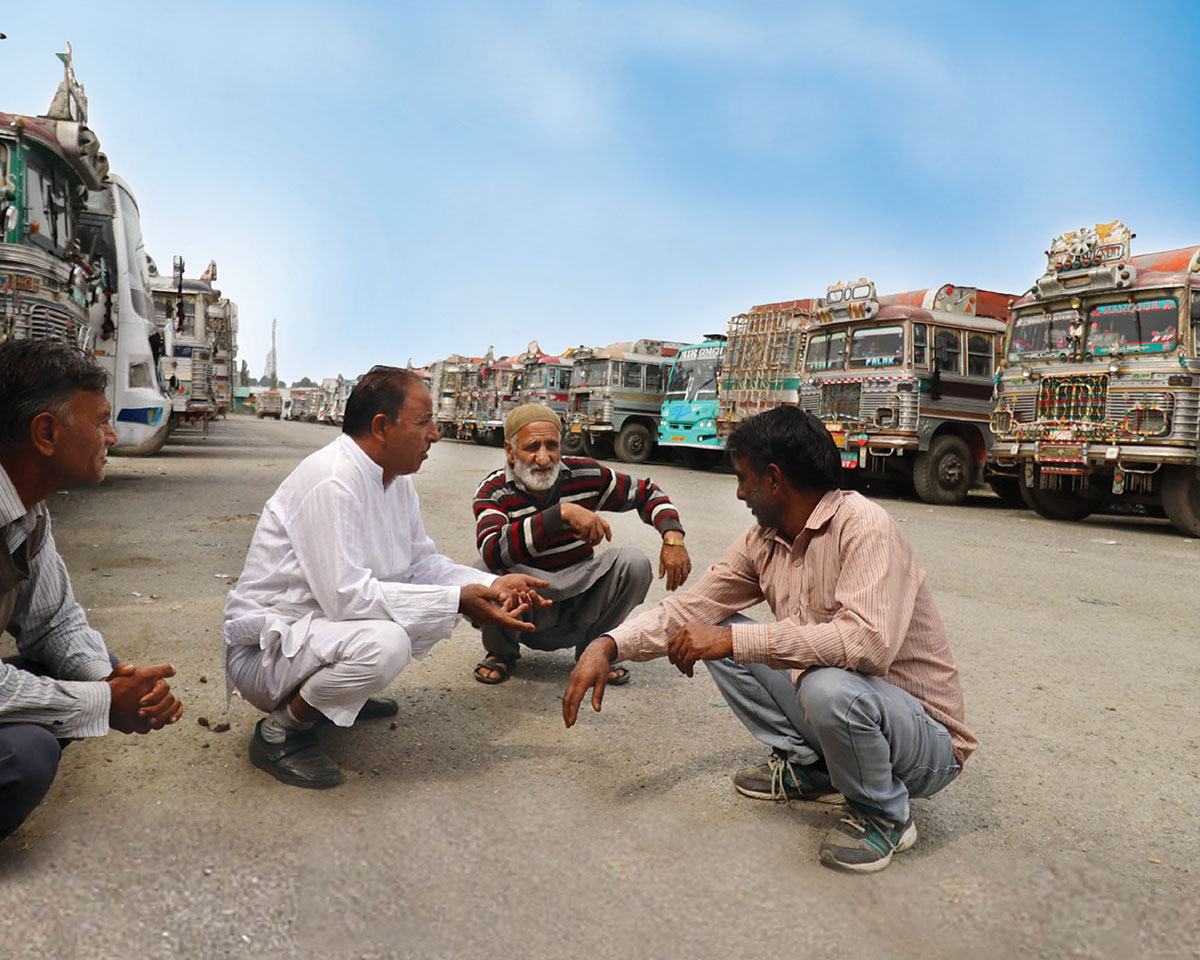
The struggle to survive is not limited to vendors alone. Transporters are among the worst hit by the lockdown. Their case is particularly different because for earning a coin, they have to move out of their homes and drive the vehicle.
Rafiq Ahmed owns a passenger vehicle. He has earned little over the past ten months. “Our joy lasted very few days as the lockdown after the abrogation of article 370 was eased. Coronavirus lockdown has forced us indoors again,” says Rafiq who is unable to pay even the interest and insurance accrued on his loan and has no funds for the maintenance of his asset. “There are more than 250 vehicles parked in our stand. Most of us are on the brink of begging,” he asserted.
Riyaz Ahmed, another driver, who plies within districts, wants to change his job. “The district administration has taken our details but nothing has been done so far. The drivers are helping themselves to mitigate sufferings,” he says. “I am worried about the school fees of my children. They are attending the online lectures and now schools are demanding fees.”
Transporters across Kashmir, and mostly in Srinagar, is a huge population that is silently suffering. The transporters are the most vulnerable. As usual, the first sector that goes off the roads for a prolonged time amidst shutdowns and lockdowns is public transport.
Muhammad Amin, 45, lives in Srinagar and drives Mazda within the city. “My vehicle is gathering dust in the garage for months. I have no other source of income. I am the lone breadwinner and the difficulties are growing with each passing day,” says Amin, adding it is the local masjid committee, which is helping him amidst this crisis. “I have to support a family of five. My son is handicapped and my daughter had to leave studies due to financial constraints. I also have to look after my mother and her medical expenses,” says Amin.
As government talks about the easing the lockdown Amin dreams of a day when he will be back on road on a driver’s seat, honking his vehicle. That, however, is unlikely to happen soon. Even if the lockdown eases a bit, public transport will be the last sector that will be permitted to re-operate and will have a lot of pre-conditions. Currently, even personal transport has to abide by restrictions as per the protocol on vogue.
Another driver, Javead Ahmed, 35, who drives personal cab of one of the officials from the tourist department from Srinagar to Jammu is rummaging through the official papers of his cab, dusting it up, revving its engine only to check if it is working. “I roam the streets thinking what to do,” he said, adding the vehicle has not left the garage for months. “We have insurance of almost 35000 to 45000 per annum to pay, and other paperwork for which we are supposed to pay a lot of money”.
Javead is tense as the school is demanding fees from his kids. He can’t pay as he has incurred debts without any prospect of earning shortly. “It is the owner of the vehicle who is taking care of my basic expenses and has not expelled me. But I am scared. At times my thoughts are suicidal,” says Amin.
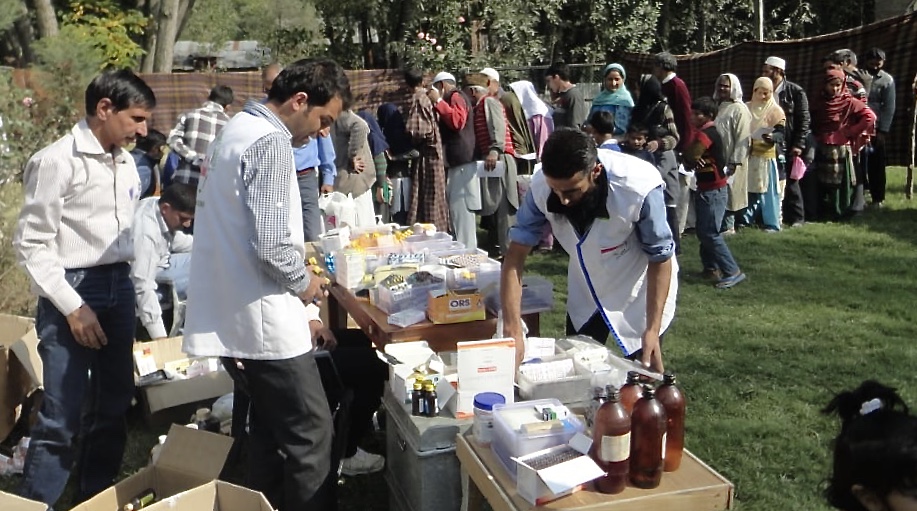
Farooq Ahmed is the owner of the three-wheeler load carrier in Srinagar and usually ferries items from various shops within the city. “I have to support a family of six and I am the sole breadwinner. I used to leave early in the morning and come late in the evening. But since pandemic everything has stopped,” says Farooq Ahmed, insisting his savings were exhausted during the lockdown. “At times as a person runs out of money, he is forced to think of selling the gold or other valuable items at home to survive. But I don’t have even that”.
The struggle didn’t remain confined to transporters alone. It is a section of the population that took the hit of the lockdown after the shutdown. A volunteer of Madad Charitable Trust was in tears while revealing the situation on the ground. “A widow is the only surviving parent to three specially-abled children. She would survive on alms but when movement froze even that trickle did not come,” the volunteer said. “A person was managing his livelihood by working small-time and when it stopped, he sent the eldest of his four kids – aged seven years as domestic help.”
His Trust is helping 30 families on a monthly basis and during the lockdown, they have so far supplied a decent ration kit to 1000 families in addition to some more help on the eve of Eid. Apart from loaning Oxygen concentrators to patients from underprivileged classes, the Trust gives scholarship to some under-matriculation students too.
“It (halt) came so abruptly that people could not understand how they will move ahead,” the volunteer said. “A family head was making wooden boxes and supplying to the Papier-mâché artists but the fall of tourism dried up the demand. Then he became a salesman and during the lockdown, his employer already in crisis had nothing to offer. The man with three kids died of a brain haemorrhage.”
People doing white-collar jobs faced the worst because they have never sought help. “A street vendor became a proud father of twins. While he was busy footing the hospital bill, the mother’s chest dried up. Then she started pressing her to diapers which he had no resource for. When he finally reached us, it took him a lot of time to make us understand where he required help,” the volunteer said. “In another case, a brother had controlled the family business pushing his youngster to work as a street vendor and feed his mother, his wife and kids and a sister who had estranged relations with her husband. In this lockdown, they had issues is managing basic food requirements. When we started investigating, nobody supported the idea that they need help. Eventually, his sister opened up and agreed to accept help only if it is discreetly provided, Reason: she fears that if her brother’s wife knows that they are being helped, she will make it another issue and push them out of the house they share.”
The volunteer said he knows of a case in which one person who is hugely stressed because of his inability to earn is on medicine, these days.
The lockdown is hitting the entire private sector. The self-employed ticket agents’ are idle and struggling as the flights – domestic and international – have not resumed fully.
Sohail Ahmed is one such agent. “Our sales are 80-90 per cent down,” he says. The agent claims that the airlines still owe them money that was to be refunded as many passengers could not travel owing to the lockdown and cancellation of the flights. “They are saying the booked tickets will not be refunded but kept as credentials. They are forcing us to make people travel on the same ticket,” says the agent.
The profession, he said, works on credit. “When the customer has not travelled how they will pay us and the money we paid on their behalf to airlines is not being refunded,” he says.
Similarly, nothing much has changed for the houseboat owners and people associated with the tourism industry since the abrogation of Article 370.
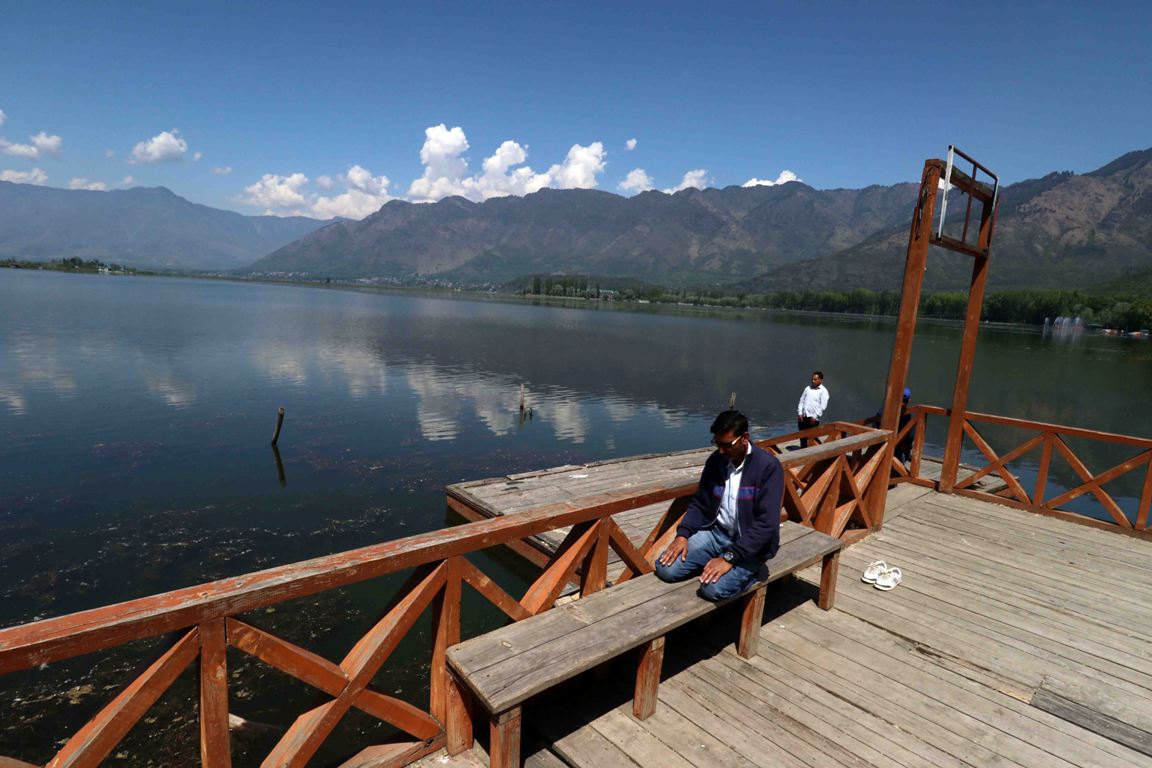
Abdul Rashid, General Secretary Houseboat Owners Association says the pandemic which restricted travel across the world has made them hopeless. “We were hopeful that spring will see tourists returning and our months of suffering will end,” says Rashid. “But the Coronavirus lockdown has turned everything upside down for us. There are many people like Shirawalas, drivers, guides, cooks, hotels, restaurants, shopkeepers, and many others who have been rendered jobless and are staying idle for months”.
Certain businesses that thrived during the lockdown included e-commerce. However, on this front, Kashmir proved exceptionally different.
E-Commerce remained in a serious crisis since August last because of the shutdown and the ban on internet. As the low-speed internet was restored, they all begun to pick up the threads and resumed the business. Then the lockdown came with cancellation of public transport and the flights even though the snail-pace internet was around.
People from diverse backgrounds are associated with the e-commerce companies and they were left idle. Some of them were terminated as their employer company started booking losses.
Amidst all this, Hilal Ahmed, one of the delivery boys on rolls for the Amazon says he has been lucky as he has been getting half of his salary. He says he has been told that ten per cent of his salary will be deducted each month during the pandemic.
“Like others, I am sitting idle at home and the struggle to survive with an empty pocket is inevitable,” Hilal said. “But I had to cut expenses and spend less to manage expenses. The number of orders we used to deliver initially has also gone down”.
At Patan’s Daslipora in the district Baramulla, Muhammad Shafi, a labourer, used to travel to Srinagar for work at construction sites. “The winter was harsh and we labourers don’t get much work during winters. It is in summers we work and earn and save. But like last summer this year’s spring has also been lost,” says Shafi.
Shafi has to feed a family of five. “My children who are studying in government schools have to study online on phones of neighbours,” he says, adding he has been helped by some NGOs and philanthropist to manage two square meals a day.
Due to the non-availability of public transport and halting of construction, it is becoming difficult for people like Shafi to survive.
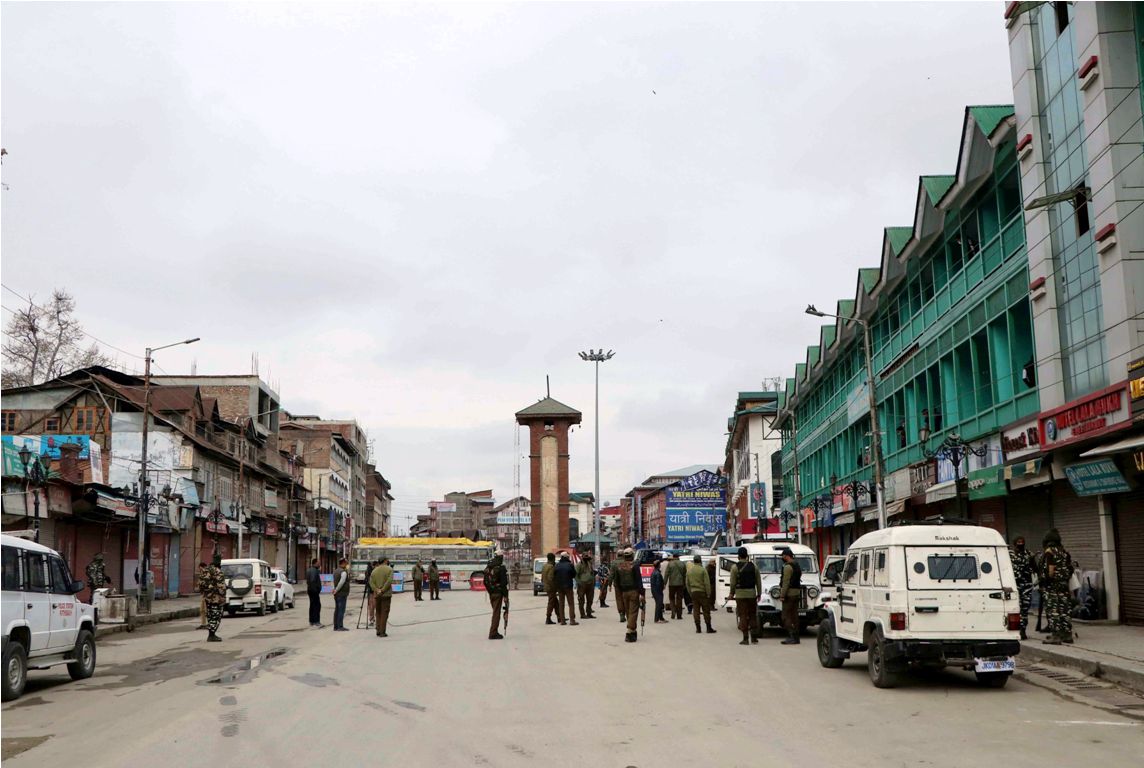
It will take a long time to actually understand the costs that people are paying to stay away from the invisible virus. “There is no movement around so a lot of these stories are invisible like the virus,” one banker who is involved in charity said. “I have just one indicator to share with you. Some of the people who donated for the poor last year, willingly accepted help this year.”
An entrepreneur who had 140 individuals on his rolls said the last time he made a payment to his staff was Rs 5000, per head, on the eve of Eid. “Last week, I called seven of them. They are all apparently all right and most of them would earn around Rs 20,000 a month, some even more,” the entrepreneur who does not wish to be named said. “I checked the bank account of one of them, he had Rs 1000 there. What I did in follow up is different. But what I intend to say is that there are people who might not be begging and seeking help are in a very critical state. It will show up very soon.”
Aware of the ground situation, a chain of NGOs is at work. “There are no clear numbers,” one of the persons who is engaged with the charity and relief distribution for all these months, said. “My estimation is that there are 50,000 families in Srinagar alone who require help for the basic need – the food. We have been able to reach not more than 20,000 families. I think, there are additional 50,000 families who survive on small debts that they might have raised within the relations or locally. These numbers are expected to surge soon.”
Deputy Commissioner Srinagar, Dr Shahid Iqbal Choudhary who had a detailed meeting with representatives of 45 NGOs operational in Srinagar said they have been feeding around 15000 people. But the meeting did not have members from countless Mohalla level committees which are working in mitigating the sufferings of the people at their own levels.















